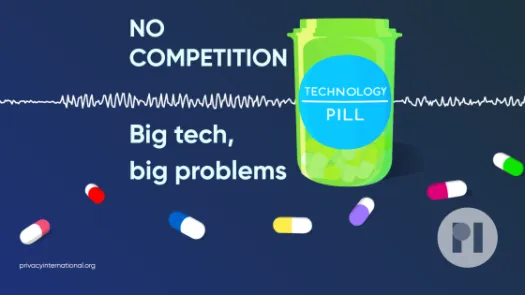
Which comes first, the Google search monopoly or the data?
A judge has ruled that Google must disclose data acquired through the operation of its illegal search monopoly. The case leaves much to be desired in protecting both privacy and fair competition in how big tech operates.

Anyone who’s used the internet at some point over the last 25 years won’t exactly struggle to understand that Google has a pervasive, and it turns out illegal, monopoly over online search. A recent ruling from a US court setting out what they think should be done about this stranglehold is, however, less clear-cut. It does little for Google’s competitors, while raising complex questions about privacy and data.
U.S. District Judge Mehta rejected calls from both the US Department of Justice and others for Google to be forced to sell off its browser Chrome or its mobile operating system Android. Instead, Google will be required to provide (one-off) access to some of its data (both search index and user data) to potential rivals looking to build and develop their own search engines. Google will also be permitted to continue paying others (like Apple and Mozilla) to use its search engine as a default.
More of a speedbump than a roadblock for the internet’s first juggernaut then. We’re not expecting people to start suggesting you “just do-an-online-search-using-your-preferred-privacy-preserving-search-engine it” any time soon.
At PI, we’ve been thinking about the important implications that both the ruling and the remedy have for the future of online and offline privacy and the role of your data in ensuring fair competition.
Google’s data is your data
Making data about how Google’s search works available to others may be intended to help level the playing field (though we tend to agree with those who think that more stringent and more timely action was justified). But it also has implications for user privacy. This data includes information about what we all search for online after all.
This was recognised by both sides - and is fact being used by Google to push back against the remedy. That’s why the ruling requires the use of “Privacy Enhancing Techniques” (PETs) to anonymise user data. And companies seeking to access the data will need to be vetted.
Technical measures that help keep us safe online are great - PI has long championed the value of end-to-end encryption, for example. But PETs can be complex, new, and imperfect. At the end of the day, we are constantly being asked to put our trust in technologies that most people can barely begin to understand, and are being run by large corporate entities. Moreover, as the online world is shrouded in opacity and most of us have a strong digital footprint, anonymisation techniques might eventually prove to be easier said than done (see, for instance, this study from 2019 in Nature).
If companies, governments and courts want to rely on complex technologies to protect our rights, then it is essential that they are transparent and collaborative in proving their effectiveness.
Data overload
The ruling is based in part on the fact that Google only managed to get hold of that data thanks to its illegal practices. In the words of the judgment, it’s one of the “fruits” of its anticompetitive behaviour. Sour grapes and bad apples left to one side, let’s not overlook that an even better situation would be one in which Google had never collected and retained so much user data in the first place (other search engines do exist…). In other words, what this unfortunate reasoning seems to suggest is that it is OK to illegally amass data as long as you are willing to share with others when you get caught later on.
Google does have that data though, and the ruling also gives clear confirmation that such data (whether illegally acquired or not) is an asset that can distort competition. When regulators and courts assess the market position of tech companies, they need to factor in the ways in which their data gives them potentially unfair advantages.
This time next year…
Of course much of what’s happening now is too little too late. Regulators continue to be reluctant to stand up to privacy-invasive, market-distorting, profit-over-people activities that define big tech. What’s personal data got going for it when big tech innovation is in town?
On brand for 2025, AI also affected the outcome of this case. The judge considered that Google is already starting to face new competition through the emergence of LLMs like ChatGPT. Given that this market is already largely dominated by the same old faces (or those with strong ties to them), we have to wonder why we should trust a laissez-faire approach to work better this time around.
PI’s fight for fair competition and fair use of people’s data is a fight for technology that works for all of us. That’s a battle that rages on - not least as remedies are being prepared to counter Google’s other recently determined illegal monopoly, this time on ad-dominance. We hope for bolder steps to be taken here, another area where abuse of data has gone on too long.




